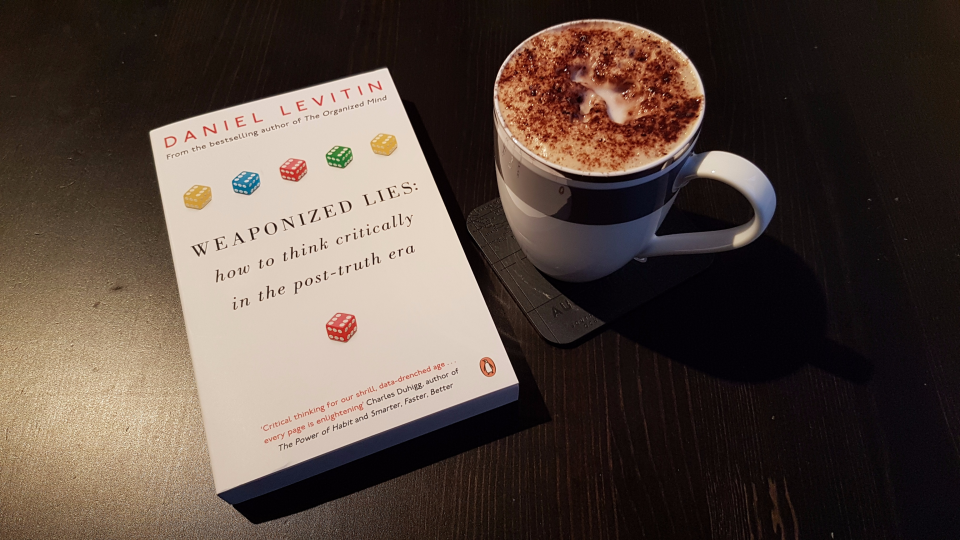Weaponized Lies

- Original Title:
- Weaponized Lies: How to Think Critically in the Post-truth Era
- Author:
- Daniel Levitin
- Published:
- 2017
- Buy at:
- bookdepository.com
“Weaponized Lies” is a psychological and business book that explores how to critically assess information in era with easy access to various information. Author of this book is Daniel Levitin, a neuroscientist, cognitive psychologist, Professor Emiritus at McGill University and bestselling author of the books “This is Your Brain on Music”, “The World in Six Songs” and “The Organised Mind”. In the book “Weaponized Lies” author tries to teach people how to critically evaluate the information that now can found with just one click of the mouse and how we can distinguish what is true and what are lies.
This book is divided into three parts, with every part being focused on evaluating one kind of information. First part of the book offers advice how to evaluate numbers. Author states that majority of people are afraid of numbers and don’t want to go into trouble by examining numbers, so it’s easy for other people to lie with statistics. Because of this, author teaches readers easy ways to check plausibility of the numbers, how to read averages, graphs, and to pay attention on how numbers are collected and reported. Second part of this book deals with evaluating words with focus on identifying expertise, finding alternative explanations, and understanding counterknowledge. Third part of the book is focused on evaluating the world with focus on how science works, Bayesian probabilities, and four case studies.
I find this book very helpful and useful especially in today’s world. Author states at the beginning that The Oxford Dictionary’s Word of the Year for 2016 was post-truth, while few days ago is announced that Word of the Year for 2017 named by Collins Dictionary is fake news. In the light of this findings, I love that author claims that truth still exists. In the era where words like post-truth and fake news are Words of The Year and where everyone can easily generate and access information, this book can serve as a guide to teach us how not to believe in everything that we find out especially on the Internet and how to critically evaluate every source of knowledge and every information.
I recommend this book to everybody, since topic is very useful, author offers very helpful and important knowledge. The book is written in very readable way with a lot of examples that make author’s teaching easier to understand and remember.
My favorite quotes from this book are:
“Uncovering unknown unknowns might be said to be the principal job of scientists. When experiments yield surprising results, we rejoice because this is a chance to learn something we didn’t know”;
“Counterknowledge and misinformation can be costly, in terms of lives and happiness, and in terms of the time spent trying to undo things that didn’t go the way we thought they would";
"True knowledge simplifies our lives, helping us to make choices that increase our happiness and save time”.





